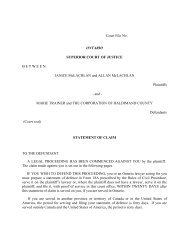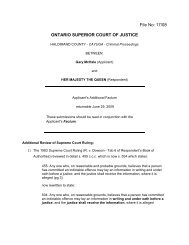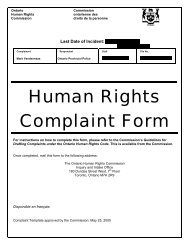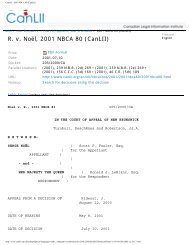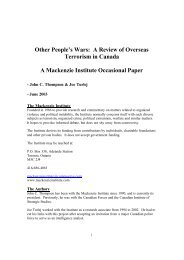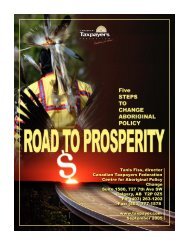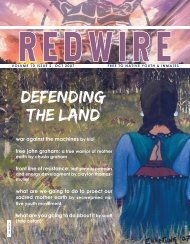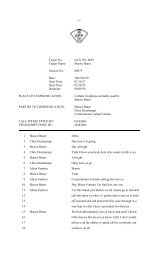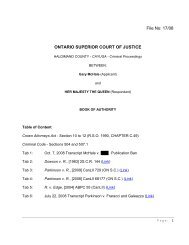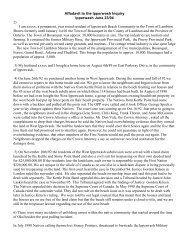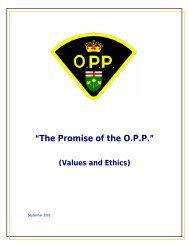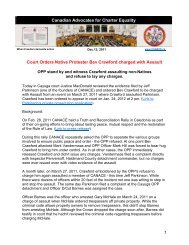Reasons for Decision - Caledonia Wake Up Call
Reasons for Decision - Caledonia Wake Up Call
Reasons for Decision - Caledonia Wake Up Call
Create successful ePaper yourself
Turn your PDF publications into a flip-book with our unique Google optimized e-Paper software.
Page 8Chief J oseph Brant and has been maintained by many of the hereditary chiefs thereafter. This issuewas considered by the courts in 1974 in the case of Isaac v. Davey, 5 O.R. (2d) 610. In summary, theOntario Court of Appeal held in Isaac that the combined effect of the Haldimand Proclamation andSimcoe's Patent did not vest title to the lands in the Six Nations people.[46] In Isaac, after a thorough review of the history, the court stated, using the language of the day,at paras. 31 and 32 that the intention of the Proclamation and the Patent was "to confer upon the loyalsubjects of the Crown within the Six Nations Confederacy ... the same rights as were enjoyed by thoseIndians who had always been there". They did not "create a unique interest" in the Haldimand Tractwhich no other native people enjoyed.[47] The court in Isaac wrote at paragraph 30:"For the purposes of this case, it is sufficient to say that Indian title in Ontario has been 'apersonal and usufructuary right, dependent on the good will of the Sovereign'. Indian landswere reserved <strong>for</strong> the use of the Indians, as their hunting grounds, under the Sovereign'sprotection and dominion. The Crown at all times held a substantial and paramount estateunderlying the Indian title. The Crown's interest became absolute whenever the Indian titlewas surrendered or otherwise extinguished."[48] The Six Nations Council have filed several claims regarding different parts of the HaldimandTract, including a claim filed in 1987 regarding the lands known as the Hamilton-Port Dover Plank Roadlands. Subsequently, in 1995, a legal action was commenced by the Six Nations Council against thefederal and provincial governments regarding the entire Haldimand Tract. The Six Nations Chiefs andthe Six Nations Council are both involved in negotiations to resolve thisaction.[49] The position of the Six Nations Council is set out in their letter to Voortman's counsel.Essentially, the Six Nations Council takes the position that the aboriginal interest in the land in theHamilton-Port Dover Plank Road land claim was never lawfully surrendered to the Crown. But, in thelegal action there is no claim <strong>for</strong> an interest in the land. That is, the Six Nations Council do not make alegal claim <strong>for</strong> possession of or return of the land. Rather, the 1995 legal action claims an accounting<strong>for</strong> all revenues that the Six Nations people should have received from the land.[50] In summary, the Ontario Court of Appeal has found that there has been no conveyance of titleto the Six Nations people, and the two recognized governing bodies of the aboriginal people, namelythe Six Nations Council and the Six Nations Chiefs, have not made any claim <strong>for</strong> title to or possessionof the property.



